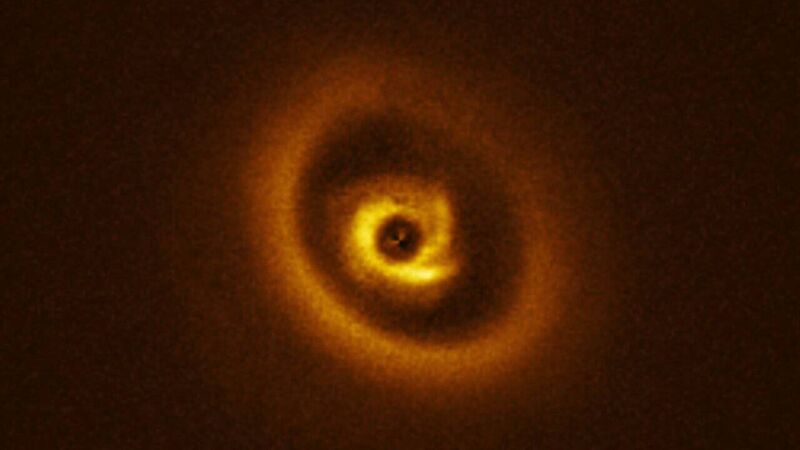Possible new gas giant planet discovered by team led by Galway scientists

A close-up of the star RIK 113, seen here surrounded by a cloud of gas and dust called a protoplanetary disc.
An international research team, led by astronomers from the University of Galway, have discovered the likely site of a new 'gas giant' planet.
The new potential planet, which the team says is up to several times the mass of Jupiter, was discovered using the European Southern Observatory’s Very Large Telescope in Chile.













